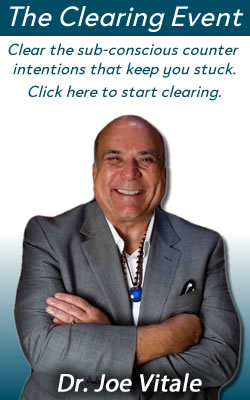Tag: sprint
Extreme Ownership
The other day I went to a local Sprint phone store to get a newer modem.
As it turned out, a miracle happened.
Since I’ve been a Sprint customer for more than ten years, I have a collection of modems that are now prehistoric. I once took a few of them to the store and the clerks took pictures of them. They had never seen the old models. They were like dinosaurs to them.
So I picked up a new and improved whiz-bang latest greatest modem and drove off.
At home, I realized that the modem didn’t have a power cord.
Apparently I had left it at the store.
Dismayed, I called the store and asked for the clerk who waited on me.
“This is Angie,” she said, brightly.
“Angie, I think I left –”
“You left the power cord here!” she interrupted, remembering me. “I forgot to put it in the box.”
I started to complain about how this would require me leaving my home again and making another drive back to the city. I wasn’t looking forward to it, as the store isn’t right around the corner. I live in the Hill Country, not the city. Plus I keep a busy schedule.
But before I could say much of anything, Angie interrupted me.
“I’ll bring it to you,” she said.
I was stunned.
I was speechless.
I was quiet for a moment while I replayed what I heard in my mind, not believing it.
“You’ll bring it to me?” I asked. “I don’t live near you, you know.”
“It’s okay,” she said. “It’s my fault and I’d be glad to drive it to you right after I get off work today.”
She did, too.
She was all smiles as she handed me the cord at my house.
“Do you live out here someplace?” I asked.
“No, but don’t think anything of it,” she said. “It was my choice.”
Angie’s astonishing customer service and upbeat attitude got me thinking about a book one of my nephews told me about.
Extreme Ownership is a New York Times bestseller by Jocko Willink and Leif Babin.
It explains the leadership skills of the U.S. Navy Seals. It’s a well written book, with stories from the military as well as business, with principles they teach to get stellar results.
What interested me was the idea of full – or extreme – responsibility.
In my books, Zero Limits and AT Zero, I talk about total responsibility as a principle of ho’oponopono.
But Extreme Ownership strips away the spirituality and explains “extreme responsibility” as a practical tool in business and life.
I have no idea if Angie read Extreme Ownership, but her instant willingness to satisfy her customer reflected an attitude of total responsibility.
She didn’t pass the buck.
She didn’t tell me to drive back in.
She didn’t complain or blame or refrain.
She took responsibility.
She took extreme ownership.
And she has a friend, a fan, and a fanatic customer for life.
How does this apply to you?
Whenever you are about to complain that someone didn’t do something you asked for, turn it around and claim “extreme ownership” for the problem.
Look in the mirror and accept responsibility for your own lack of communicating how important the job was.
Look to yourself for your lack of leadership skills.
And then do something to correct it.
The other night I watched a brief biography of President John F. Kennedy.
When the Bay of Pigs was a disaster in 1961, and soldiers lost their lives, Kennedy went on national television and accepted total responsibility for the tragedy.
You may not be president, but you ask people to do things and they often don’t do them.
Are you going to blame them or find a way to resolve the issue?
Extreme ownership – whether taught by the U.S. Navy Seals or the practiciners of ho’oponopono – is about taking full responsibility and fixing the problem from within you.
Of course, at a certain point, you may decide to remove the people who aren’t doing what they promise, no matter how many times you explain it or in so many different ways.
That’s when you need to pull a Donald Trump and say, “You’re fired!”
But that decision only comes after exhausting your alternatives and taking extreme responsibility for the results – or lack of them.
As my new motto states, “It is what you accept.”
What are you accepting?
Ao Akua,
PS – Have you read my new book?



